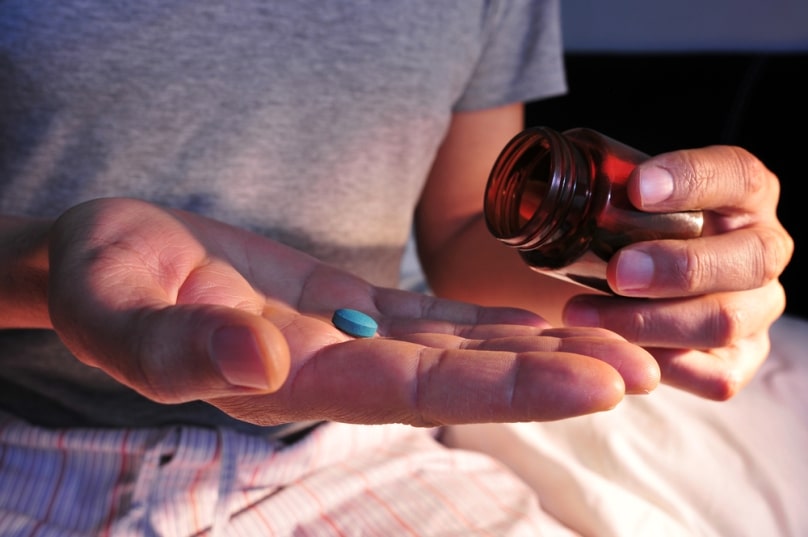
In Greek mythology, the Hydra had numerous heads and, if one was cut off, two more would grow in its place. I have been thinking of the legend of Hydra with the news that Dr Philip Nitschke’s euthanasia advocacy has been significantly curtailed as a result of conditions imposed on his medical registration by the Medical Board of Australia.
In July last year, the board suspended his registration as a doctor following revelations of his involvement with the death of Nigel Brayley, a Perth man who was not terminally ill. Dr Nitschke successfully appealed the suspension, but it remained in force while the Board investigated an additional 12 complaints against him.
Then at the end of last month, it was announced that a settlement had been achieved, and that Dr Nitschke’s medical license would be restored after he agreed to 25 conditions on the registration.
Among these is a requirement that Dr Nitschke restrict his practise of medicine (including advisory, policy, education and management work) to the Northern Territory. He must not prescribe, supply or administer any types of medication usually used in end-of-life care without written authorisation from a palliative care physician, and he must cease giving advice or information about suicide or the means by which someone might take their own life.
Put into general terms, Dr Nitschke agreed to stop all of the activities which have made him a public figure. But almost immediately after the “head” of Dr Nitschke’s suicide advocacy was cut off, it was replaced by two more.
Firstly, there is the work of Dr Nitschke’s wife, Dr Fiona Stewart. Dr Stewart is not a medical doctor and so does not need to submit to the authority or oversight of the Board. Simultaneously, with the announcement that Dr Nitschke would submit to the conditions on his medical registration, she told media that she would facilitate the workshops previously run by her husband, ensuring that he will still have a voice (albeit using her as a mouthpiece.)
She is already heavily affiliated with pro-suicide group Exit International, and so not much will change in terms of the all-too-easy availability of lethal information.
[As a side note, Dr Nitschke might decide to give up his medical registration and return to euthanasia advocacy. Indeed, he might have only agreed to the extensive conditions so that the list of them would become public, and be able to be used in his argument that his freedom of speech is being curtailed. Despite this, it was still a good decision by the Board, because it was a strong statement that counselling a person towards suicide is not in keeping with medical practice. This is crucial because of the legislation proposed by the Australian Greens which seeks to use the Commonwealth’s constitutional power over the provision of “medical services” to introduce euthanasia and assisted suicide into Australia.]
The next “head” to spring up is that of Andrew Denton’s advocacy. In the past couple of weeks he has shown us that he intends to be a vocal advocate for the legalisation of euthanasia in this country. Just three days after the announcement about Dr Nitschke’s medical registration conditions, Mr Denton began giving radio and television interviews on the need for legalised euthanasia in Australia. He delivered the annual Di Gribble Argument on the topic, and intends to commence a podcast series on the subject beginning in January of next year.
Mr Denton is intending to be more than just another celebrity opinion maker looking to weigh in on a controversial issue on which he has no expertise.
He uses the painful death of his own father 18 years ago as a springboard to enter into this discussion. In the past year he has travelled to places where euthanasia is legal in order to gather statistical and anecdotal evidence to support his cause.
He says he has spoken with nurses, doctors, politicians, lawyers, academics, priests, surgeons, palliative care specialists, activists, the dying and their families in order to ensure he has a fulsome view of all “sides” to this discussion.
So while one head has been cut off the Hydra, two more have appeared. In this case, the voice of Dr Nitschke (who can often come across as abrasive, dismissive and condescending – even by those who share his desire to see euthanasia legalised) has been replaced by the voices of a woman and a dual Gold Logie winner. It is likely their voices will be much more palatable to the “ordinary Australian”, and it is this which makes their involvement more alarming.
Fortunately, those of us on the side of life not only have good personalities on our “side”, we are supported by the truth (which comes from the ultimate Truth), and the experience of being at the forefront of caring for the sick and dying in this and every country.
